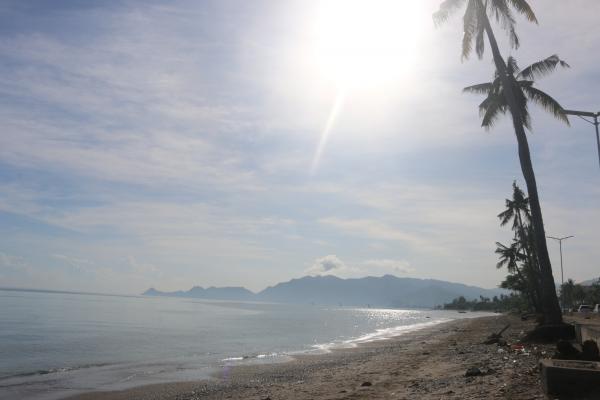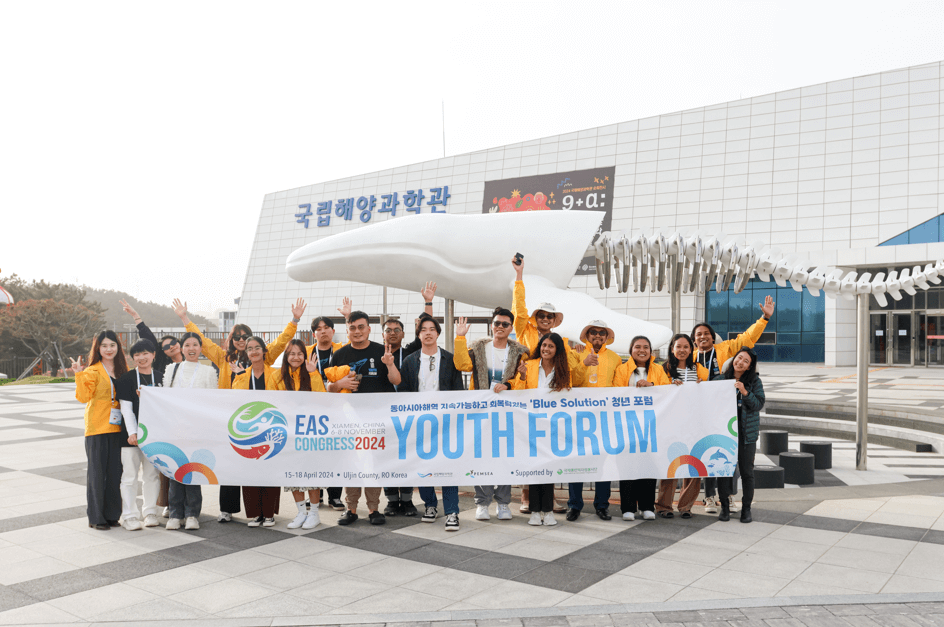Timor-Leste Government commits to a sustainable future with the adoption of a National Oceans Policy
Monday, 24 April 2023

Timor-Leste has taken a significant step towards furthering its sustainable ocean management with the adoption of its National Oceans Policy (NOP) by the Council of Ministers on 12 April 2023. The NOP outlines the government's long-term approach to the development of its coastal and ocean territory. It formulates an integrated and whole-government approach, working across government agencies to address overarching ocean challenges such as marine pollution and climate change. Its priorities will serve to direct both the actions of the government and the partnerships it undertakes with external organizations. It serves a vision of “A healthy and secure ocean that sustains the livelihoods, prosperity and social and cultural values of the people of Timor-Leste in a fair and equitable manner”.
The policy recognizes the importance of the ocean for the well-being of Timor-Leste's people, both for livelihood and for cultural significance. Furthermore, Timor-Leste’s economy relies heavily on the ocean, with important sectors such as fisheries and tourism requiring long-term ocean health and sustainability. The 2018 National State of Oceans and Coasts (NSOC) report for Timor-Leste showed that although the ocean economy’s 87% contribution to national GDP (i.e., 87% of US$2.27 billion GDP in 2015) was mostly from the oil and gas sector, the country has the potential to benefit more from sustainable development of other ocean-related sectors, such as tourism, fisheries and aquaculture, shipping and ports, ocean energy, and others. The NSOC report also presented around US$5.25 billion as estimated value of the coastal and marine ecosystem services in the country (not captured in the GDP accounts), which is much higher than the value of the ocean-based economic activities as it includes nonmarket values like the regulating, supporting and cultural services being provided by ecosystems.
The NOP also builds upon existing national laws, as well as international and regional commitments and treaties adhered to by Timor-Leste. Its development was supported by the GEF/UNDP/PEMSEA Scaling Up of the Sustainable Development Strategy for the Seas of East Asea (SDS-SEA) Implementation project 2014-2020, and its adoption is part of Timor-Leste's commitment to UN Sustainable Development Goal (SDG) 14: Life Below Water.
The development of the NOP was a participatory process. A National Policy Development Working Group included representatives from various government agencies. Under the coordination of the Ministry of Agriculture and Fisheries (MAF), the group worked with PEMSEA, which engaged the support of the Australian National Centre for Ocean Resources and Security (ANCORS) of the University of Wollongong to facilitate consultations for the drafting process. This process produced six key objectives:
Working together: An integrated participatory ocean governance system, which facilitates collaboration across jurisdictions, allows for the exchange of knowledge, data, ideas, skills, and experience, and recognizes and considers local customary law, national law, and international and regional commitments.
Securing national jurisdictions and exercising sovereign rights over our oceans: maintenance and protection of the rights of Timorese people to equitably and sustainably use and manage their marine natural resources.
Our future: a diverse Blue Economy based on the sea.
Strengthening our natural defense: protecting, maintaining and restoring coastal and ocean resources and ecosystem services.
Investing in our people: developing the capacity of Timorese to engage in ocean-based development and protection through research, education and capacity building.
Climate change vulnerability, adaptation and mitigation.
Implementation will be carried out by a National Oceans Steering Committee (NOSC), which will have working groups to tackle different aspects of implementation. The committee will answer to the country’s Council of Ministers. Monitoring and evaluation of the implementation will be carried out using the NSOC reporting process.
Prior to the review by the Council of Ministers, MAF led consultations to update the NOP. Upon the request of MAF, PEMSEA hired a consultant in February 2023 to manage final updating of the NOP, and the Arafura and Timor Seas Ecosystem Action Phase II Project (ATSEA-2) helped organize and fund the stakeholder consultations needed to review the updated NOP.
The Minister of Agriculture and Fisheries, Engineer Pedro dos Reis Martins, stated that the “National Oceans Policy is an important policy for our country, because we have bountiful marine resources which need to be managed sustainably for the benefit of our and future generations. Therefore, during our mandate [the Eighth Constitutional Government of Timor-Leste], I requested that technical experts revise the draft National Oceans Policy which was developed in 2016, in order for it to be approved by the Council of Ministers this year. The National Oceans Policy will be the basis for the implementation of the National Strategic Oceans Plan. The policy will also allow us to take an integrated and holistic national position for the management of our marine resources.”
“The adoption of the NOP is a major contribution that will support Timor-Leste's sustainable development goals and the well-being of its people,” said PEMSEA Executive Director Aimee Gonzales. “PEMSEA is proud to have supported the development of the NOP with UNDP and GEF support. The combination of the approved NOP, the mainstreaming of integrated coastal management and the development of the national state of ocean and coasts report focused on blue economy provide solid foundation for future sustainable investments in Timor-Leste.”
The adoption of the NOP is a significant achievement for Timor-Leste and marks an important step towards sustainable ocean management in the region. It provides a clear framework for cooperation between government, the private sector, and local communities, and a model for the future sustainability of our shared seas.
The official announcement by the Government of Timor-Leste can be found at: http://timor-leste.gov.tl/?p=32577




